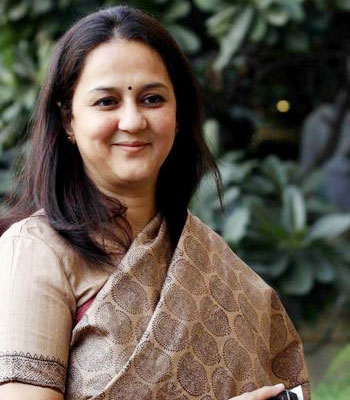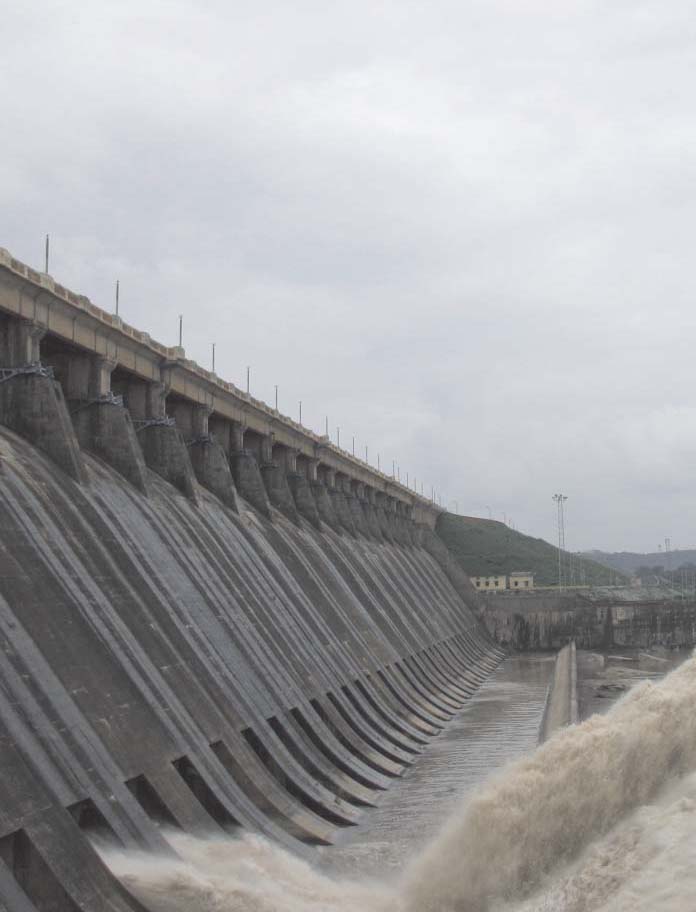Irrigation
Video: ‘Water futures - It’s everyone’s business’: A talk by Rohini Nilekani
Posted on 13 Dec, 2012 08:40 PM
Report of the Standing Committee on Water Resources suggests inclusion of the subject ‘water’ in the concurrent list of the constitution
Posted on 08 Dec, 2012 12:05 PMNeed for inclusion of the subject 'water' in the Concurrent List of the Constitution to put in place a comprehensive legislative framework
Highlights from the 10-year water policy research programme of the International Water Management Institute and the Sir Ratan Tata Trust discussed at the IWMI - TATA Annual Partners' Meet at Anand, between 28-30 November, 2012
Posted on 05 Dec, 2012 02:06 PMIWMI-Tata water policy research programme is a collaborative initiative between the International Water Management Institute (IWMI) and the Sir Ratan Tata Trust (SRTT).
Living rivers, dying rivers: Stuffed rivers of Vrishabhavathi-Arkavathi from the Cauvery system
Posted on 02 Dec, 2012 08:16 PMIntroduction

From ripple to a tide – A film by SDTT on its work with local NGOs and communities on diversion-based irrigation
Posted on 01 Dec, 2012 10:52 AMPart I: From ripple to a tide, a film by SDTT
National conference by IRRAD and UNICEF on women-led water management: Strategies towards water sustainability in rural India
Posted on 22 Nov, 2012 05:07 PMThe Institute of Rural Research and Development (IRRAD) and UNICEF India hosted this National Conference on Women-led Water Management .
Groundwater status of arid tehsils of Sirohi district of Rajasthan state- An article in Bharatiya Vaigyanik evam Audyogik Anusandhan Patrika (BVAAP)
Posted on 17 Nov, 2012 10:54 PMThis article published in the Bharatiya Vaigyanik evam Audyogik Anusandhan Patrika (BVAAP) informs that understanding the soil and water resources is the first step towards carrying out agriculture in a sustainable manner.
Floods, fields and factories: Towards resolving conflicts around the Hirakud Dam
Posted on 27 Oct, 2012 08:13 PM This action research report by the Forum for Policy Dialogue on Water Conflicts in India maps the variegated issues contributing to the water conflicts ar
This action research report by the Forum for Policy Dialogue on Water Conflicts in India maps the variegated issues contributing to the water conflicts ar
Dugwell - An asset for sustainable livelihood: An Arghyam and Action for Social Advancement (ASA) project carried out in 2 tribal bocks of Ratlam district in Madhya Pradesh
Posted on 27 Oct, 2012 10:44 AMAt the same time we also need to keep in mind the judicious use of natural resources, especially in rain-fed areas. Integrating sustainability and demand is one of the greatest challenges faced by communities and nations today.
Kerala and Karnataka's lesser known rainwater harvesting structures
Posted on 16 Oct, 2012 03:09 PMMadakas are one of the fast disappearing traditional rainwater harvesting structures found in the laterite belts of Karnataka and Kerala. They are naturally occuring depressions with high terrain on the three sides where water from the surrounding laterite slopes, mainly runoff from the rains, is accumulated.






